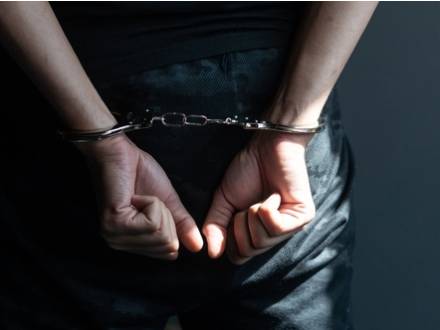How a Prior Conviction Can Affect a New Battery Charge in Illinois
 If you already have a criminal record, facing a battery charge can be even more complicated. Does the existing record impact the new charge and how the court views you? In Illinois, past convictions can strongly affect how prosecutors handle your case and how a judge decides your sentence. However, you still have the right to challenge the allegations against you. A Cook County, IL battery defense lawyer can help you understand your rights. Together, we can build a strong defense.
If you already have a criminal record, facing a battery charge can be even more complicated. Does the existing record impact the new charge and how the court views you? In Illinois, past convictions can strongly affect how prosecutors handle your case and how a judge decides your sentence. However, you still have the right to challenge the allegations against you. A Cook County, IL battery defense lawyer can help you understand your rights. Together, we can build a strong defense.
What Counts as a "Prior Conviction" for Battery in Illinois?
Under 720 ILCS 5/12-3, battery happens when someone knowingly causes bodily harm to another person or makes unwanted physical contact that is considered insulting or provoking. If you were convicted of this crime or a related charge like domestic battery under 720 ILCS 5/12-3.2, that conviction can affect your new case. The court and prosecutors will look at your history to decide how serious the new charge should be. Even if your previous case was years ago, it could still have an impact. An experienced criminal defense attorney can review your record and help you build a strategy to limit its effect on your charges or sentence.
How Can a Past Battery Conviction Make the New Charge a Felony?
A first battery offense is usually a Class A misdemeanor. This means up to one year in jail and fines up to $2,500. However, if you have a previous conviction for battery or domestic battery, your new charge could be upgraded to a felony.
Prosecutors may apply 730 ILCS 5/5-5-3.2, which outlines certain factors that make a sentence more severe for someone with prior convictions. Under this law, a repeat offense, such as a second domestic battery, can be reclassified as a Class 4 felony. This upgrade increases the possible punishment to one to three years in state prison rather than a brief time in county jail.
How Do Prior Convictions Affect Sentencing in Illinois?
Judges in Illinois must look at your prior record when deciding punishment. If you have multiple violent offenses, the sentence can be longer. The court may also refuse probation. In some cases, community service and diversion programs may not be available as well.
Keep in mind that every situation is different. Judges often consider factors like your behavior since the prior conviction and your current circumstances. With the right legal guidance, it may be possible to present your story in a way that helps lessen the impact of your record.
Can I Challenge How the State Uses My Prior Conviction in a Battery Case?
There are ways to challenge how the state uses your record. A defense attorney can look at your old case to see if it qualifies as a true conviction. If a charge was dismissed or if it was expunged, it should not be used against you.
Your lawyer can also file a motion asking the court to keep your record out of the trial. This is especially important if the old conviction is unrelated to your new charge. Keeping that information out of court can help prevent unfair bias and reduce the risk of a felony upgrade. Skilled defense lawyers often use these strategies to make sure you are treated fairly.
Contact Our Chicago, IL Battery Defense Attorney Today
Before you enter the courtroom, you need someone who understands how Illinois courts handle battery cases involving repeat offenders. Attorney James F. DiQuattro is an accomplished and aggressive criminal defense lawyer who goes the extra mile for his clients. He represents individuals facing both state and federal criminal investigations and brings dedication and determination to every case he handles.
If you are accused of battery and have a prior conviction, contact Law Offices of James F. DiQuattro to speak with a Cook County, IL battery defense lawyer today. Call 312-627-9482 to schedule your free consultation.
















